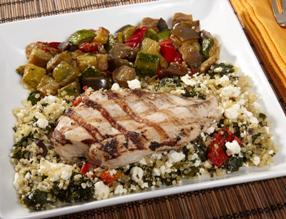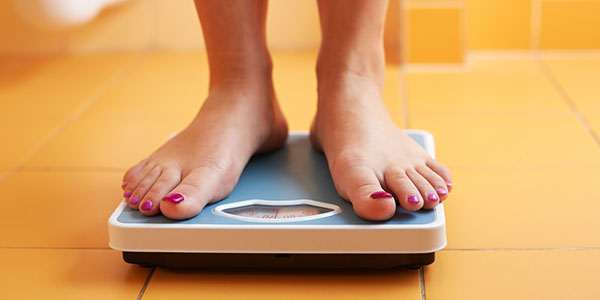Vegan Diet: How to Get the Nutrients You Need
What is a vegan diet?
People who follow a vegan diet avoid eating all animal products, including meat, eggs and dairy. They also don’t eat food products that have an animal source, like gelatin and honey. Vegans must be aware of “small print” ingredients on food labels, such as the following:
- Carmine/cochineal: A common food coloring that comes from crushed beetles.
- Shellac: A glaze that comes from beetles. It is often found on shiny hard candies and sprinkles.
- Casein: A milk product sometimes found in protein shakes.
- Whey: A dairy product that appears as an additive in a wide variety of foods.
Why do people choose to be vegans?
For many, veganism is about more than food choices. It’s a way of life. People who follow a vegan diet are often inspired by a desire to improve their health, preserve the environment, and protect animals from harm and exploitation. Strict vegans do not use products derived from animals, such as leather, silk, or certain soaps and cosmetics.
What are the benefits of following a vegan diet?
Vegans avoid many of the unhealthy substances found in animal products, like cholesterol and saturated fat. They also tend to take in more vital nutrients from fruits, vegetables and grains. The food choices of a vegan diet can lower the risk of high blood pressure, type 2 diabetes, certain cancers and heart disease. People who have type 2 diabetes and follow a vegan diet may improve their insulin response and have better control of their blood sugar level. Vegans also tend to have healthier body weights, which can improve overall health. A well-planned vegan diet offers some people the satisfaction of following their beliefs and the enjoyment of a longer, healthier life.
What are the challenges of following a vegan diet?
A healthy vegan lifestyle requires careful attention to balanced eating. Even if you eat extra fruits and vegetables, you’re at risk of not getting enough of the vitamins and minerals found in animal products. You can avoid nutritional problems and enjoy a variety of health benefits by planning your diet carefully to get enough of the following nutrients.
Iron plays a key role in the production of red blood cells. These cells help carry oxygen throughout your body. Good sources of iron include beans, broccoli, raisins, wheat and tofu. Iron-fortified cereals can also be a good source. Getting enough iron can be a challenge for vegans because iron from plant sources isn’t digested as easily as iron from meat. Consider eating foods rich in vitamin C (for example, oranges). They can help your body absorb iron.
Calcium builds strong bones and helps prevent osteoporosis (thinning, brittle bones). Try soybeans or dark leafy greens like broccoli, bok choy and kale. Fortified soy milk and juices, and calcium supplements are also available.
Protein helps keep your skin, bones, muscles and organs healthy. Amino acids are the building blocks of protein. Your body needs them to break down food. Amino acids that your body can’t make by itself are called “essential amino acids.” You have to get these from the food you eat. Vegans need to eat a variety of plant proteins every day to get enough of the essential amino acids. Vegan options for protein include nuts, legumes, tofu, soy milk, peanut butter, grains and seeds.
Vitamin D plays an important role in bone health. It helps your body absorb calcium. The body produces its own vitamin D in response to sunlight. Depending on where you live, 10 minutes of summer sunshine 3 to 4 times a week may be enough to help your body create the vitamin D it needs. However, if you need more of this nutrient, fortified products such as soy milk, rice milk and cereals are available.
Vitamin B-12 helps with red blood cell production and anemia prevention. It can be especially challenging for vegans to get enough B-12 because it is mainly found in fish, shellfish, meat and dairy products. Look for cereals, soy milk and other vegan products fortified with this vitamin. Also, talk to your doctor about whether you should take a supplement to avoid having a low B-12 level. If you use a supplement, check its label carefully to be sure that it doesn’t contain animal products.
Zinc is important to help your body work properly and stay healthy. It can be found in beans, nuts and soy products.
Omega-3 fatty acids help improve heart health and brain function. Flaxseed meal and flaxseed oil are possible sources. Also, look for food products fortified with omega-3 from a plant source. If you use a supplement, check the label carefully to be sure that the omega-3 doesn’t come from fish oil.
As a vegan, you can pursue a lifetime of good health by making balanced choices. Keep an eye out for signs of nutritional problems, such as changes in your hair, skin or weight. Talk to your family doctor so he or she is aware of your diet and can help you make the best nutritional choices for your health.
This content was developed with general underwriting support from Nature Made®.
Bibliography
See a list of resources used in the development of this information.
-
A Detox Recipe to Cleanse Your Body and Burn Fat – Results After 7 Days
If you have been paying attention to the health buzz over the past
-
Almonds – Superfood For Weight Loss
Eating almonds helps in the fight with excess weight, because they
-
Losing Weight Effectively For A Change
The demand for quick and efficient weight loss products and methods h
-
Healthy Ideas for Valentine’s Day
Healthy Ideas for Valentine’s Day
-
Diet plan – “Why is your Diet Plan May Not Be Working”
Diet Plan along with some weight loss e
-
Weight Loss Diet – Water the Hidden Ingredient
Weight loss diet of any kind tells you
- DON'T MISS
- 2 – Ingredient Morning Beverage For Instant Weight Loss
- The Best Ways to Boost Your Metabolism
- The importance of counting calories for weight loss
- Incredible Exercises In Order To Tighten Up Your Loose Skin And Lose Double Chin
- Summer Thirst Quenchers For A Weight Loss Diet
- 10 Years Thinner: Your First Weeks Meal Plan
- Holiday Leftovers to Use, and Which to Lose
- How to keep fruit and vegetables fresh
- 5 Great Solutions For A Flat Stomach at Any Age
- Is Our Diet Delivery Program Right for You?




